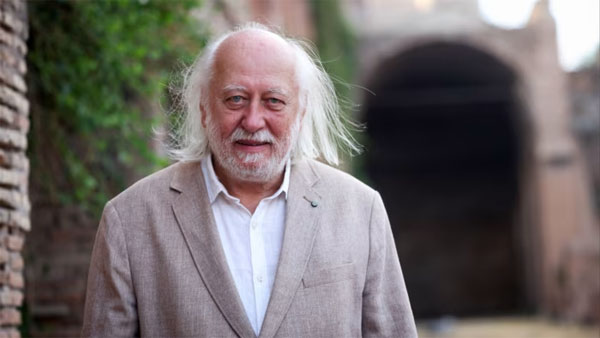Daijiworld Media Network - New Delhi
New Delhi, Oct 9: Hungarian literary titan Laszlo Krasznahorkai has been awarded the 2025 Nobel Prize for Literature, cementing his status as one of the most formidable and visionary writers of the postmodern era. The Swedish Academy, in its announcement, praised his “compelling and visionary oeuvre that, in the midst of apocalyptic terror, reaffirms the power of art.”
At 71, Krasznahorkai becomes the second Hungarian to receive literature’s highest honour, after Imre Kertész in 2002. He also holds the distinction of being the first Hungarian recipient of the Man Booker International Prize, which he won in 2015. A master of sprawling narratives, disorienting structures, and philosophical depth, Krasznahorkai has built a body of work that is as daunting as it is unforgettable.

His novels are known for their intense prose, where a single sentence can stretch across multiple pages, and paragraphs are monolithic blocks of thought. Time bends, perspectives shift mid-sentence, and the narrative unfolds at a pace one critic likened to the slow crawl of societal change. The author once described his writing as “reality examined to the point of madness,” a statement that captures both the gravity and the surreal energy of his fiction.
Krasznahorkai burst onto the literary scene with Satantango (1985, English translation Satan’s Tango, 2012), a bleak and haunting tale set in a decaying Hungarian village. Structured like a tango—with chapters stepping forward and then back—it tells of a con man who manipulates desperate villagers into abandoning their homes, only to scatter them into oblivion. The novel was adapted into a legendary seven-hour film by director Béla Tarr in 1994, becoming a milestone of slow cinema.
His next major work, The Melancholy of Resistance (1989), turned the spotlight on a small town roiled by chaos. A travelling circus—carrying only a dead whale—triggers unease, which spirals with the arrival of agitators. In this eerie allegory, Krasznahorkai conjures an atmosphere of moral and social collapse, mirroring the political tremors of a crumbling Eastern Bloc.
In War and War (1999), he ventured beyond Central Europe, following a man’s obsessive quest to transcribe a mysterious manuscript online in New York City, foreshadowing our age of digital legacy. With Destruction and Sorrow Beneath the Heavens (2004), he travelled to China, exploring the erosion of classical Chinese culture in the modern world.
Seiobo There Below (2008), perhaps his most structurally audacious work, uses the Fibonacci sequence to order its chapters, creating a rhythm that echoes natural harmony. The novel spans epochs and continents—from Japanese Noh theatre to Renaissance art—exploring the intersection of art, transcendence, and suffering.
Returning to Hungary in Baron Wenckheim’s Homecoming (2016), Krasznahorkai crafted a baroque meditation on politics, memory, and decay, centred on an ageing aristocrat. He called this his “final book,” explaining that he had always aimed to write just one novel. Each successive book was an attempt to perfect the first, and with Baron, he felt he had finally succeeded.
Despite that declaration, the author has since written at least two more novels and several novellas and essays, continuing his deep engagement with literature, mysticism, and the philosophical void.
Krasznahorkai’s work evokes the existential dread of Kafka, the absurdities of Gogol, and the bleak humour of Beckett, but he transcends them by weaving a unique tapestry that blends Eastern mysticism with the dark heart of post-Soviet Europe. His Nobel Prize is not only a recognition of his literary genius but also a celebration of the endurance and evolution of literature in confronting the chaos of the modern world.